How to Stop Your Kid’s Tantrums

In every parent’s life, there is a period, sooner or later, when he or she comes across the child’s hysterics. For some parents, this becomes a real problem: they do not understand what is the primary cause of such behaviour in their child and how to overcome this.
In this article, we will try to identify the possible reasons for the child’s hysterics and their symptoms. We will also go through the possible options for parents’ behaviours, which could help to reduce or even illuminate the risk of child hysterics occurrence.
Contents:
- What are hysterics or tantrums?
- Reasons
- Symptoms
- Child tantrum at various age periods
- When hysterics are suitable?
- What can parents do?
What are hysterics or tantrums?

Prostock-studio/Shutterstock.com
There can be various reasons for such behaviour. They depend on the age of the child, as well as on personal features of the nervous system, type of upbringing in the family and many more.
Child’s hysterics can start as a response to an insult, requirements of parents, which the child does not wish to fulfil, or in the situation of unpleasant news.
It is very important for the parents to distinguish the hysterics from other possible child’s states that are very similar to hysterics; for examples, a whim.
We come across whims in nearly all growing kids, and they are not the reason to be worried. They are safe for the child’s psychological state. When correct parents’ behaviour is present, whims help the child to understand the boundaries of what is allowed.
Reasons

Prostock-studio/Shutterstock.com
Most of the psychologists come to the conclusion that the following reasons for children’s tantrums are the most common ones:
«Pay attention to me!»
In the modern world, mothers have very high requirements and take on too much responsibility on themselves: they need to do a lot of housework every day, have time for freelance work, give some attention to their husbands, have time for themselves… In this net of events, mothers try to find things for the child to do independently.
Sooner or later, the child understands that he is «waiting in the line» for the mother’s attention. Of course, this course of things does not satisfy him and, then, he breaks a series of unreasonable, from mother’s point of view, hysterics. The occurrence of these hysterics can mean, «Remember about me! I am here! I want your love, care, and attention!»
«What if…»
Often, the child is checking the boundaries of the allowed with hysterics. By trial and error, he or she understands: what is allowed, what is forbidden, where is good, where is bad. Children are discovering the world by checking the boundaries. This is normal. This process is a natural part of developing cooperation between the parent and the child.
«I can’t do it, no way!»
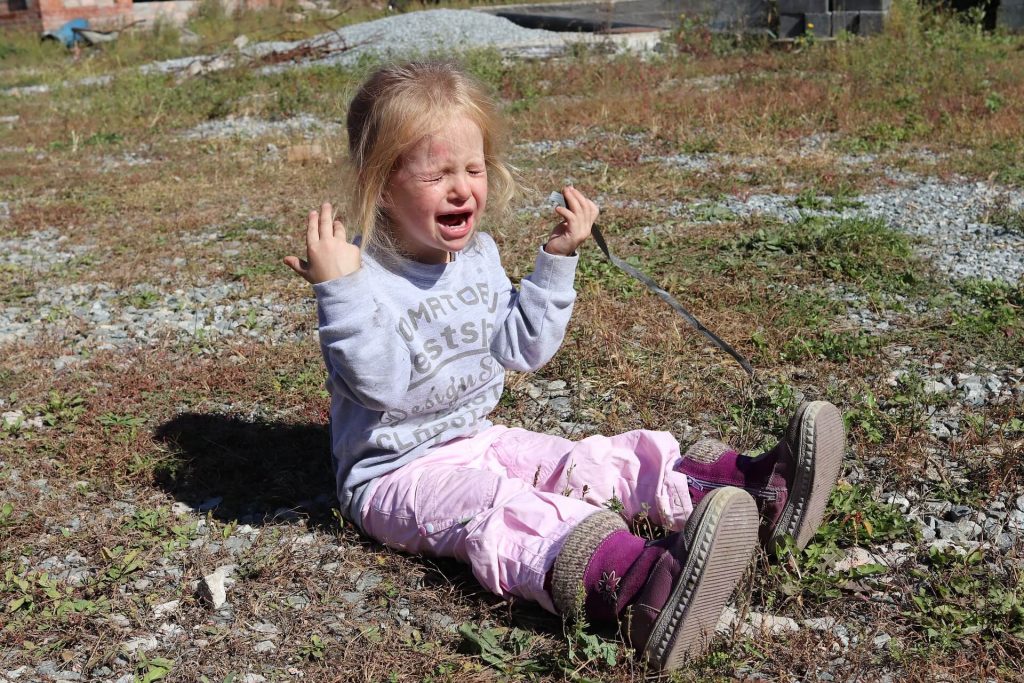
Prostock-studio/Shutterstock.com
Not knowing how to smoothen the emotions and to cope with them independently is one of the main reasons for child tantrum while learning new skills. The child wants to get the final result of his or her actions as quickly as possible (making a figure out of clay, cutting our the circle, drawing a tree), and if there is no result – there is time for hysterics! It is important to understand that during these moments, the child is very sad and this problem is taking over the thoughts of the small person.
«Today you can have it, but tomorrow – no!»
In the cases when parents’ behaviour is not continuous, when there is no clear and understandable system of boundaries, the child is feeling lost and does not understand how to behave. He cannot choose the correct reference point. In such situations, hysterics is the child’s ally and it is helping him or her.
«I am tired»
A long-planned day for the child (many active games, holidays or birthday celebrations, long trips) is a high risk of hysterics’ development at the end of the day.
«It is painful! And give me to drink!»
Any physical discomfort, such as hunger, thirst or pain, can become a reason for child’s hysteric.
«When there is too much love!»
When parents do not see boundaries in their care for the child, and they strangle him or her with their love and support, children begin to resist it. And the best tool for this is hysteric. It is best seen in crisis age periods.
Symptoms
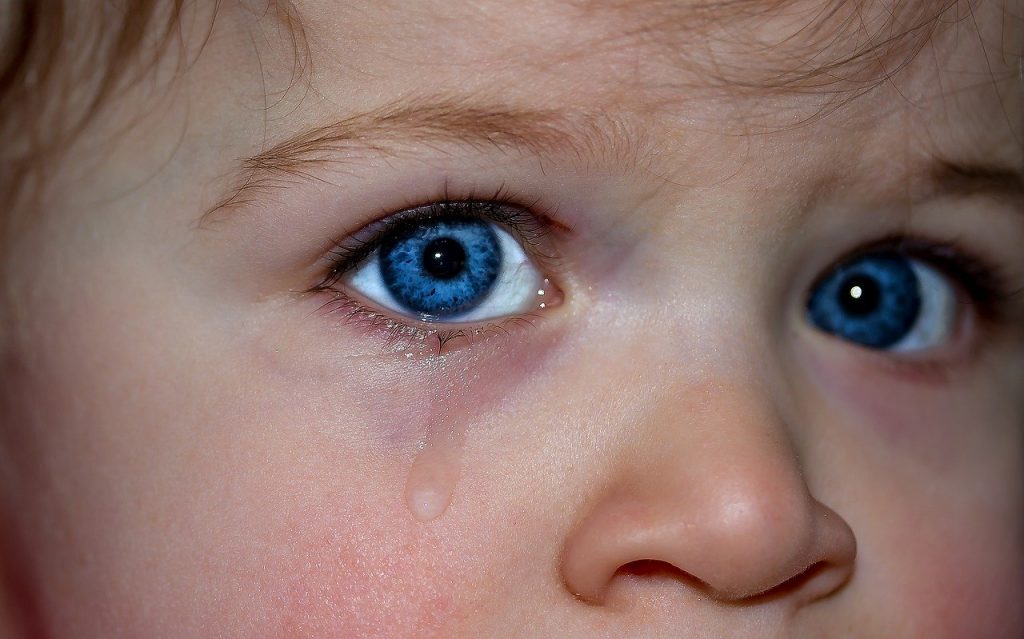
Prostock-studio/Shutterstock.com
The most common symptoms of a tantrum in children are loud crying and shouting, which is supported by muscle tension of the whole body.
Then, it is changed by impulsive and chaotic actions. Palms are squeezed tightly (the child is banging on walls, tables, floor).
If the adult is trying to physically impact the child at this moment, then, he gets punches, bites, and scratches.
After this, sharp movements quiet down. The child begins to cry. There are a lot of tears. Muscles weaken, and signs of tiredness start to appear.
You can also relate teeth bites (for example, of the furniture), head bangs on the wall, falling and «stumping» to signs of hysterics. Severe attacks of hysterics can lead to convulsions and respiratory arrest.
After this, children often report headaches, pains from bangs, nausea.
Diagnostics

Prostock-studio/Shutterstock.com
Parents need to understand that tantrums are only one of the signs of crisis stages in the child’s life.
Often, parents choose (intuitively) the most harmonic way to help their child with hysterics.
There are several cases when you need to ask for a specialist’s help:
- during or after the attack the child has arrest of long-term breath-holding;
- the child loses consciousness, is susceptible to apparent mood changes;
- the child is harmful to others and/or to him- herself;
- experiences nausea or vomiting;
- fearful and experiences nightmares.
Despite this, if hysterics end with the tiredness or high weakness of the child, then, parents should pay attention to this and consult the specialist (psychologist, neuropathologist, psychotherapist, etc.).
Child tantrum at various age periods
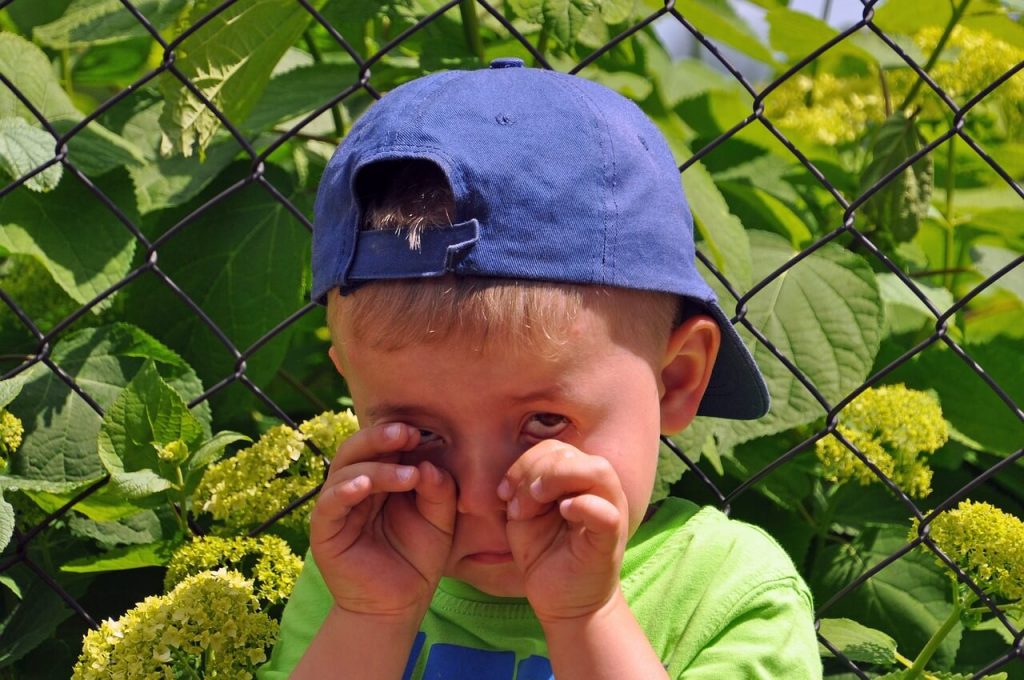
Prostock-studio/Shutterstock.com
Some children may experience hysterics even when they are nine months old, but often the start of hysterics falls at the one and a half-year-old age of the child. Due to age, the kid cannot control his or her emotions. His speech has not developed yet to explain his thoughts, feelings, and wishes.
At the age of 2, the child uses hysterics to attract the attention of adults. With this, he or she is using:
- screams;
- lying or rolling of the floor (especially when there are many people around);
- stubbornness.
Such behaviour is natural, as an emotional system of the child of this age has not yet developed.
Especially strong hysterics we can see in children at the age of three. In this special, full of events age, hysterics appear in different ways, but they have severe stubbornness, negativity and self-will in common.
In this age, the child does not know how to reach a compromise. He or she is using manipulation. If the three years old could get what they wanted from the parent once, then, he or she will be using this method a lot in the future.
While the child is growing, his knowledge of the surrounding world widens, and he is not feeling a strong need to use hysterics. By the age of four, the communication skills are well developed and the child is using the «ecological» method more often – verbally telling parents about their feelings and wishes.
If hysterics continue even after the age of four – this is a serious reason to analyze the upbringing style and to ask for the help of specialists.
When hysterics are suitable?

Prostock-studio/Shutterstock.com
It is hard to believe, but hysterics also have a positive meaning for the child and parents:
- Using hysterics and even tears, the child can release tension and stress.
- The release of negative emotions during hysterics causes normalization of the emotional state and sleep.
- If the child is showing you his feeling openly (through hysterics), this means that he trusts you somehow.
- The child is learning the boundaries of the allowed with hysterics.
- After the hysteric is over (if the adult is not trying to stop it), the child «feels» acceptance by parents and starts to trust him more.
What can parents do?

Prostock-studio/Shutterstock.com
How to calm the child down during the tantrum
- Try to prevent the start of the hysteric. Especially, if you have already got the experience from your child, you can «predict» the risks and prevent its start in advance.
- Do not try to stop the hysteric with strictness, screams or by using physical violence. If the child is not causing harm to him-/herself or to others during the hysteric, you can just wait until the child is calm and you can talk. You should talk calmly, not loudly, but reassuring.
- If you did not have enough time to understand what exactly causes the hysteric, try to ask questions, «Were you scared?», «Is it painful?», «Do you want…?».
- Hug the kid. He or she will feel safe and understand that he is not alone, and there is someone to help.
Treating hysterics
If you are trying to prevent hysterics, but it does not work, and the child’s state worsens from time to time, you should consult the specialist.
In the beginning, it is worth talking to the psychologist. If the work with the psychologist does not help, them, maybe the psychologist himself can advise other specialists or you can make this decision yourself. Neuropathologist and psychotherapist, if there are indications, can prescribe drug treatment. But with modern medicine, before starting the drug treatment, try to consult several specialists and make the decision regarding the drug treatment only after this.
Advice for parents
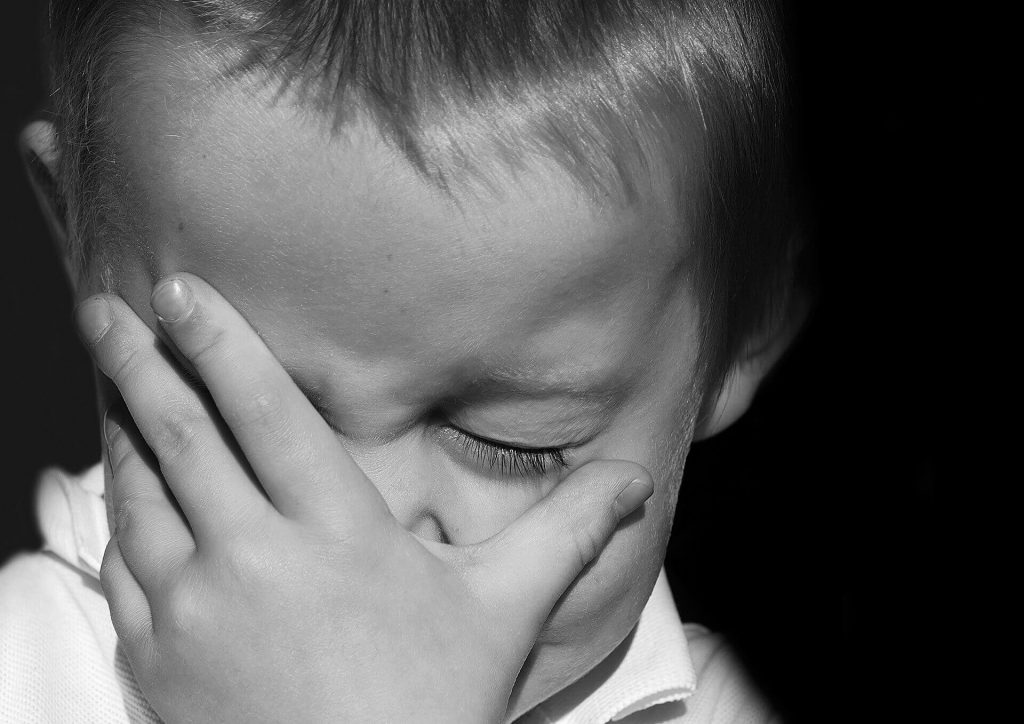
Prostock-studio/Shutterstock.com
How should parents, who have come across the child’s hysterics behave?
1. Pay more attention to your child.
It can be 15 minutes a day, but this should be communication without TV and gadgets in your hands, not during cooking and not in breaks of talking to your husband. No! Just you and the child, at least 15-20 minutes a day.
2. Talk to the child.
During the conversation, you should be «equal» or «eyes to eyes» – squat down, tell him or her about your feelings and worries about behaviour. Ask the child to tell you about what bothers him or her.
3. Hug.
Strong hugs can help the child to calm down. Do it calmly and surely, with love.

Prostock-studio/Shutterstock.com
4. Help the children to understand themselves.
Help the child to understand and accept his or her feelings. This can be done by asking, «Are you angry when you are hungry?» , «Are you hot and your mood becomes worse?»
5. Control your behaviour.
6. Do not let the child tire.
7. Give the child the possibility to show independence.
The main thing that parents should remember is that tantrum entered their lives not forever! This is temporary, but it is a very important stage in your child’s development. Parents should show with their example of how to express feelings, how to ecologically and constructively show negative emotions.
Re-think your upbringing model, accept your child with all features, do not be scared to show him your love and pay more attention to him, a few minutes a day – this is not difficult, but by doing this, you will notice changes in the child’s behaviour. There will be less space for hysterics and more for harmony!
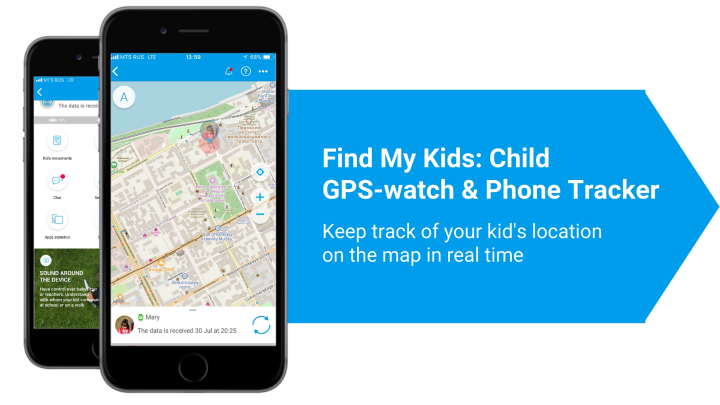
Prostock-studio/Shutterstock.com
Проверьте электронный ящик




















